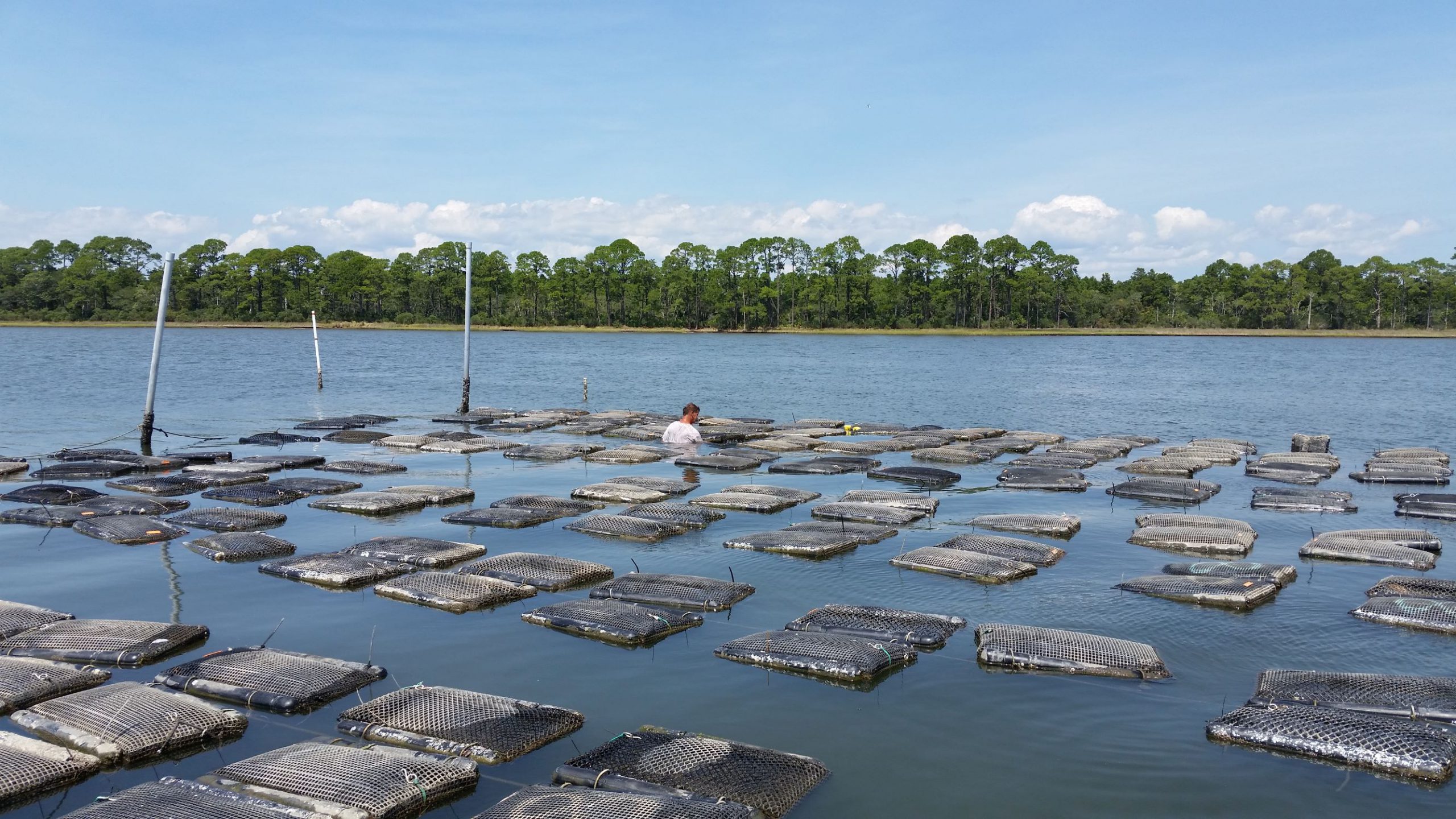On September 17, 2020, President Trump and US Secretary of Agriculture, Sonny Perdue, announced a second phase of an important program assisting America’s farmers. The Coronavirus Food Assistance Program (CFAP 1) was originally announced in April 2020 and now CFAP 2 will provide up to an additional $40 billion support, along with adding more than 40 specialty crops not previously covered under CFAP 1.

This will be good news for many local farmers; the ones that conduct their “chores” in our Panhandle bays and bayous by producing aquacultured oysters and clams. Losses in sales of molluscan shellfish were not covered under CFAP 1 because they were eligible for assistance under the CARES Act (Coronavirus Aid, Relief, and Economic Security). However, many local growers were not able to qualify under the CARES Act for various reasons and are in serious need of assistance.
Applications for CFAP 2 will be accepted by the USDA from September 21 through December 11, 2020. Payments will be based on 2019 sales, excepting new farmers who had no sales in 2019. Their calculations will be based on 2020 sales up to the point of application. The percent-payment-factor will be figured on a sliding scale, depending on amount of sales; ranging from 10.6% for sales below $50,000 to 8.8% for sales over $1 million.
The USDA has done a very good job of laying out information regarding the program on their website and also provide assistance through our local Farm Service Agency offices around the state. Assistance with applications is available on line at https://www.farmers.gov/cfap/aquaculture. The FSA office for Wakulla County is in Monticello and can be called at (850) 997-2072 ext 2, or email Melissa Rodgers at melissa.rodgers@usda.gov. Growers in Franklin County can reach their FSA office in Blountstown at (850) 674-8388 ext 2, or email Brent Reitmeier at brent.reitmeier@usda.gov.
With the plethora of confusing acronyms flying around in our present day, CFAP is one worth paying attention to. Why? Because it is providing targeted assistance to a segment of our US economy we should all stand behind. Agriculture is a critical component of all of our lives each and every day. If you have a chance to thank a farmer for what they do, or a legislator for moving this effort forward, or an industry support group that provided the data the legislator needed; don’t miss the opportunity. The hard-working men and woman who produce our locally grown fresh seafood deserve it.
 0
0
